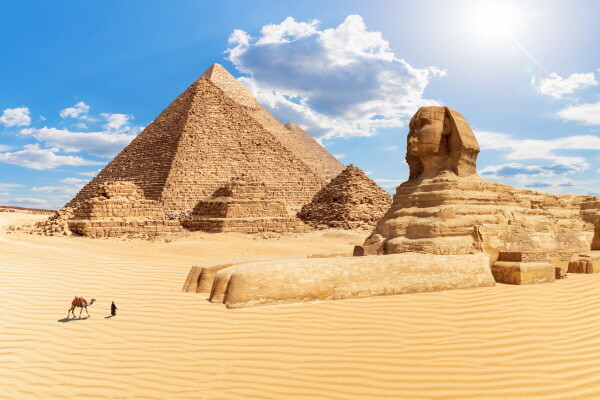
Ancient Egypt, a civilization that flourished along the Nile River for over 3,000 years, left an indelible mark on human history. Its monumental pyramids, intricate hieroglyphics, and sophisticated religious beliefs continue to captivate and inspire people worldwide.
The Gift of the Nile Egypt's civilization emerged from the fertile banks of the Nile River. The annual flooding of the river deposited rich silt, making the land highly productive for agriculture. This reliable food source allowed for the development of a complex society, with specialized labor, trade, and a centralized government.
Pharaohs and the Afterlife The pharaohs, Egypt's divine kings, ruled with absolute authority. They were believed to be intermediaries between the gods and the people. The construction of massive pyramids, such as the Great Pyramid of Giza, was a testament to the pharaoh's power and their belief in an afterlife. The Egyptians developed a complex system of beliefs about the afterlife, and their elaborate burial rituals and mummification practices were designed to preserve the body for eternity.
Hieroglyphics and the Rosetta Stone The Egyptians developed a sophisticated writing system known as hieroglyphics. These symbols represented both sounds and ideas. For centuries, hieroglyphics remained a mystery until the discovery of the Rosetta Stone in 1799. This stone contained a decree written in three scripts: hieroglyphics, demotic, and Greek. The Rosetta Stone provided the key to deciphering hieroglyphics and opened up a window into ancient Egyptian culture.
Legacy The legacy of ancient Egypt is vast and enduring. Egyptian art, architecture, and religion have influenced cultures around the world. The discovery of King Tutankhamun's tomb in 1922 sparked a renewed interest in ancient Egypt, and Egyptology remains a popular field of study.
[Copyright (c) Global Economic Times. All Rights Reserved.]






























